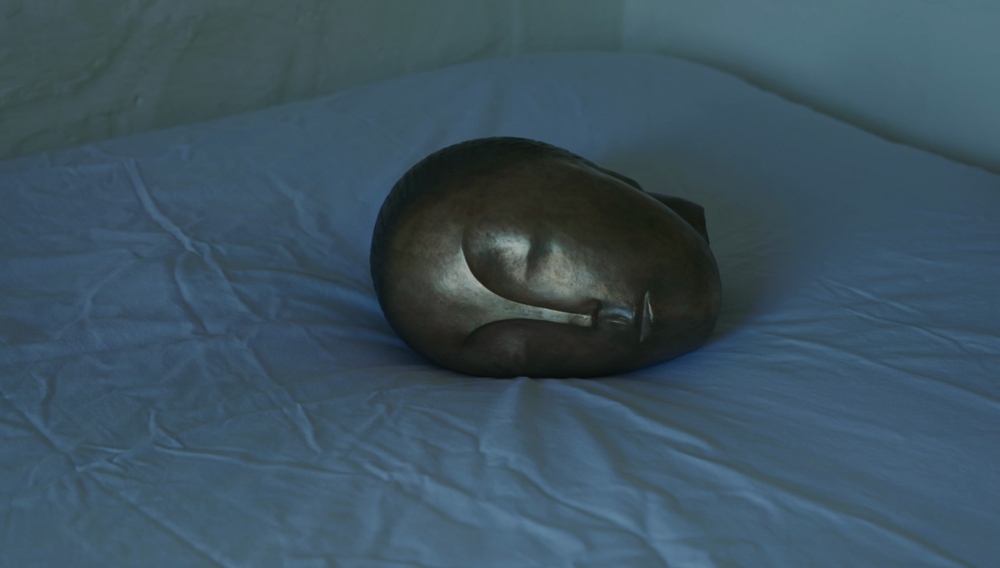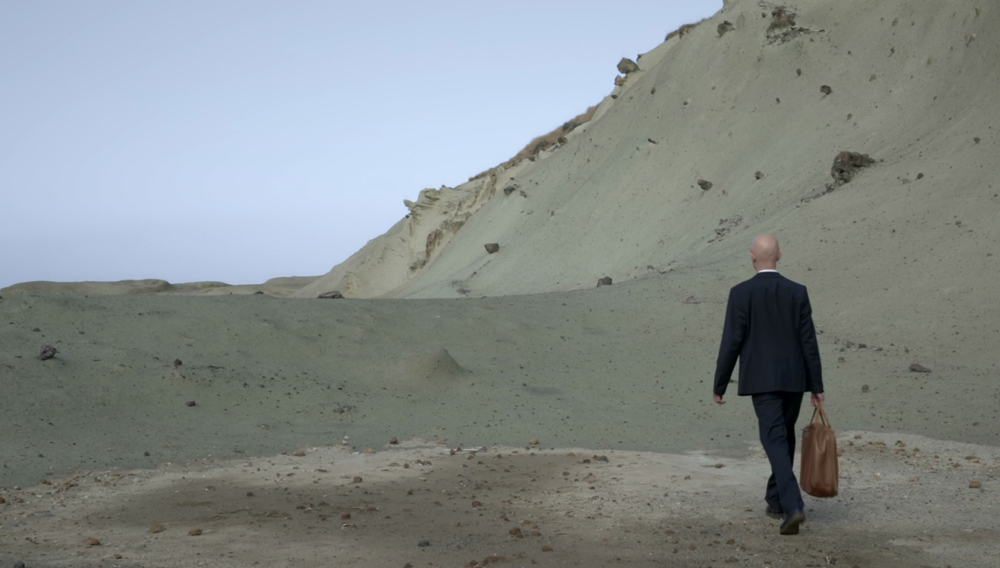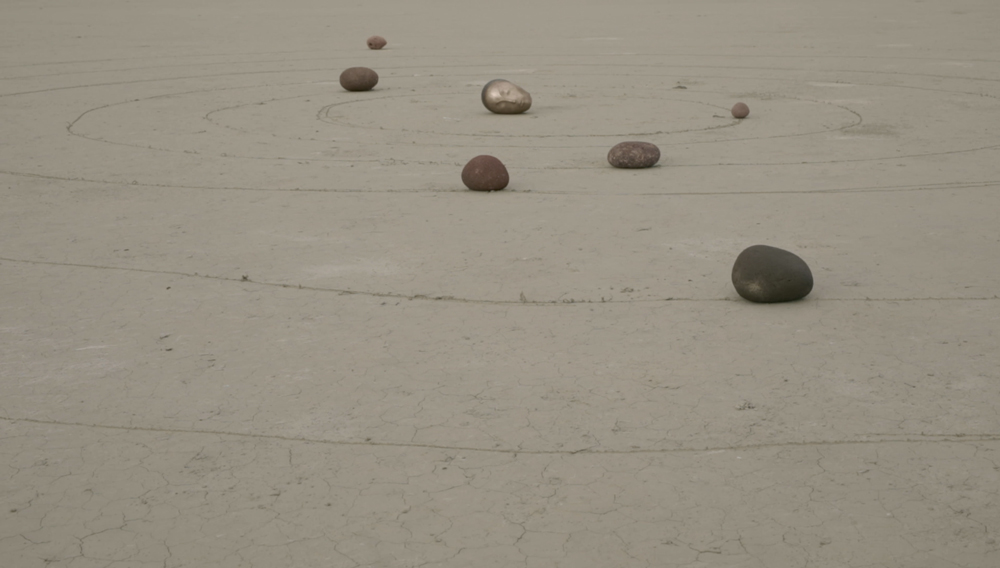








THE MUSE
2020
Full HD video | 16:9 | 20.23 min. | color | sound
In Kay Walkowiak's short film The Muse, a young man in the gravitational field of an object - Brâncusi's "Sleeping Muse" (1910) - and his love for it, appear like a pair of orbiting celestial bodies. In the midst of his existential loneliness, the young man finds, in the depiction of a woman as an egg-shaped head with closed eyes, an archetype of sensual female purity that seems to be removed from all temporality. In order to become forever one with his love, he embarks on a path that leads him inevitably into the retreat of his imagination and eventually to the negation of normative reality.
The Muse is a love story that tells of the human longing for an everlasting love, which, in the end, is nothing more than the impossible attempt to overcome one's own transience by turning to a seemingly autonomous abstract form. Just as Brâncusi with his Sleeping Muse tried to create the ideal of an aesthetically pure form, Michelangelo Antonioni, in his films of the 1960s, repeatedly addresses the quest for absolute love, which, however, is doomed to failure due to the "alienation" of the subject suffered in modernity.
In the very first scenes of the film, The Muse visually breaks with both utopias - that of an ideal form and that of a timeless love. The location is Antonioni's abandoned villa on the Costa Paradiso, in Sardinia, once the site of a love affair between the director and the actress Monica Vitti. However, the transience of all things has caught up with reality: the dome-shaped architecture of brittle concrete has become a silent monument to a past love, as well as a first psychogram of the main character of the film, who now leaves it behind, on his deeply personal rite de passage.
Directed / Camera / Edited: Kay Walkowiak
Actor: Andreas Wesle
Voice Over: Aldo Gianotti
Sound Mix: Nigel Brown
Color Grading: Andi Winter
Production Assistant: Barbara Probst
Special Thanks: Hannah Breitfuss, Paul Loderer, Valentina Piredda, Florian Spies, Julian Walkowiak
Supported by: Federal Chancellery of Austria, Federal State of Salzburg, City of Salzburg, City of Vienna
The Muse is a love story that tells of the human longing for an everlasting love, which, in the end, is nothing more than the impossible attempt to overcome one's own transience by turning to a seemingly autonomous abstract form. Just as Brâncusi with his Sleeping Muse tried to create the ideal of an aesthetically pure form, Michelangelo Antonioni, in his films of the 1960s, repeatedly addresses the quest for absolute love, which, however, is doomed to failure due to the "alienation" of the subject suffered in modernity.
In the very first scenes of the film, The Muse visually breaks with both utopias - that of an ideal form and that of a timeless love. The location is Antonioni's abandoned villa on the Costa Paradiso, in Sardinia, once the site of a love affair between the director and the actress Monica Vitti. However, the transience of all things has caught up with reality: the dome-shaped architecture of brittle concrete has become a silent monument to a past love, as well as a first psychogram of the main character of the film, who now leaves it behind, on his deeply personal rite de passage.
Directed / Camera / Edited: Kay Walkowiak
Actor: Andreas Wesle
Voice Over: Aldo Gianotti
Sound Mix: Nigel Brown
Color Grading: Andi Winter
Production Assistant: Barbara Probst
Special Thanks: Hannah Breitfuss, Paul Loderer, Valentina Piredda, Florian Spies, Julian Walkowiak
Supported by: Federal Chancellery of Austria, Federal State of Salzburg, City of Salzburg, City of Vienna
︎ Archive Film